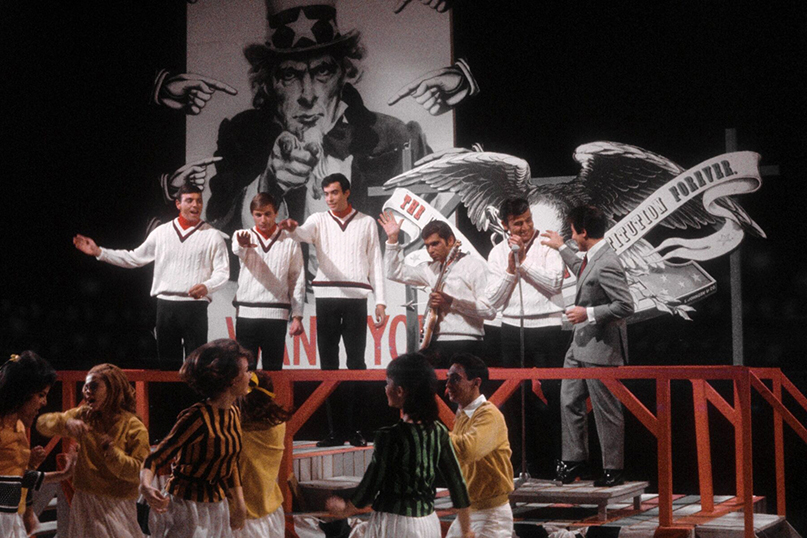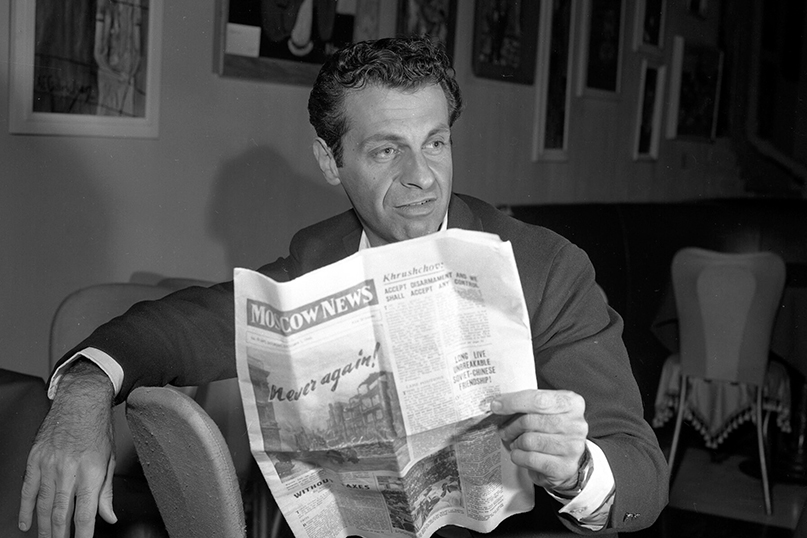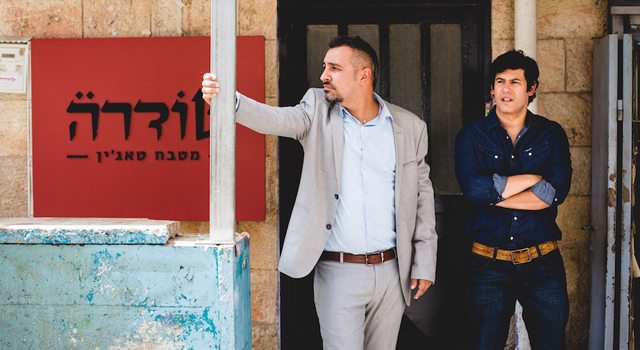
(JTA) — When Jay Black wanted The New York Times to understand that he was a hell-raiser, he said he was thrown out of New Utrecht High School in Brooklyn.
When he made the same point to The Forward, he added that he was subsequently tossed out of three yeshivahs.
“Three yeshivas,” Black said twice for emphasis in a 2014 interview. “I was a bad kid.”
Black, born David Blatt, died in Queens, New York, on Oct. 22 at 82, of cardiac arrest brought on by pneumonia.
He was selling shoes in 1962 or 1963 at Thom McAn when a buddy, Marty Kupersmith, who knew Blatt from the Jewish doo-wop circuit, asked him to take the place of Jay Traynor, who had quit Jay and the Americans, a group that had scored a single hit in 1962.
There was a condition: Blatt had to take on the first name Jay.
There are differing accounts of how he got the name Black; there’s evidence he was using it professionally before he joined Jay and the Americans, but he insisted he muttered “Jay Blatt” when Mike Douglas, the daytime talk show host, asked him his name, and Douglas repeated “Black” and it stuck.
Black, raised in an Orthodox family, had sung as a youngster with the choir of Cantor Moshe Koussevitzky. He became known for his powerful reach-for-the-rafters voice and his dramatic delivery. Bandmates dubbed him “The Voice” and it stuck.
With his dark good looks and his operatic delivery, he affected a Latin persona; one of the band’s most popular numbers was “Cara Mia,” in which he pledges to his presumably Italian object of adoration that “I will be your love until the end of time,” escalating into a heart-stopping falsetto. The song peaked at #4 on the Billboard Hot 100 chart.

(Hullabaloo Archive/Michael Ochs Archives/Getty Images)
There were other hits: “Come a Little Bit Closer” (which peaked at #3 on the charts), about an encounter with a seductress in a Mexican border town that ends badly; and their cover of the Drifters’ “This Magic Moment” (peaked at #6). The group was big enough to open for the Beatles in 1964, at the Fab Four’s very first U.S. concert.
The band wore sweaters and were clean-cut, but Black liked to project a mysterious, bad-boy affect: he boasted of his friendship with the Mafia boss John Gotti, and in a 1994 profile refused to tell The New York Times what his name was before “Black” — in fact, nothing in the long profile refers to his Jewishness. (He also made sure the reporter knew that female fans were, in his sixth decade, still delivering panties to him.)
He toured across America for decades, but New Yorkers loved their native son best. He sported a flag on his jacket, and said he was proud of the band’s 1963 hit, “Only in America,” recorded just when the counterculture was about to take off.
“Only in America can a guy from anywhere go to sleep a pauper and wake up a millionaire,” he sang.
In his 2014 interview with The Forward, Black seemed taken aback that the reporter even knew he was Jewish. But then he went all in, noting that the interview was taking place hours before the onset of Simchat Torah, and saying that he would light yahrzeit candles for his parents to mark the day.
The group broke up in 1973, but Black continued to perform under “Jay and the Americans” until 2005, when a chronic gambling habit drove him into bankruptcy. Debts forced him to sell back the name to three original founders of the group, who were ready to reunite and take the show on the road.
The revived group let him continue performing as Jay Black, but he never quite forgave them for taking the band name from him.
“We shared both wonderful and very contentious times, and much like an ex-wife, we are so proud of the beautiful children we created,” the group said Saturday on its Facebook page. “We’ll always remember The Voice.”
Taking his place fronting the band is a younger guy named John Reincke. Now known as Jay.
Jay Black, thrice-married and thrice-divorced, is survived by three sons, a daughter and five grandchildren.
Comedian Mort Sahl fused stand-up with political satire and inspired the likes of Lenny Bruce
By Shira Hanau
(JTA) — Mort Sahl, a Jewish satirist who was credited with making caustic political and social satire popular in stand-up comedy, died Tuesday, Oct. 27 at 94.
Often walking on stage holding just a rolled up newspaper, Sahl liked to riff on the headlines of the day in extended improvised monologues. At a time when comedians tended to steer clear of politics, Sahl took aim at politicians and was known to end his sets with the line: “Are there any groups I haven’t offended?”
Steve Allen, the first host of “The Tonight Show,” once introduced Sahl as “probably the only real political philosopher we have in modern comedy.”
Though Sahl was not religious and did not discuss his Jewishness in routines or often in public, he inspired a wave of fellow Jewish stand-ups. Woody Allen named him as a major influence and commented in interviews how Sahl also influenced the fellow Jewish pioneer Lenny Bruce — who would take Sahl’s freeform style and cutting satire to crude new heights.
Sahl was born in Montreal in 1927 to Jewish parents from New York’s Lower East Side and eventually moved to Los Angeles. As a teenager, Sahl dropped out of high school there and tried to enroll in the ROTC program by lying about his age, but his mother found him out after two weeks and brought him home. Sahl was married three times and a had a son, Mort Jr., with his second wife. Mort Jr., died of a drug overdose at age 19 in 1996.

The elder Sahl got his break performing in San Francisco years after graduating from college, performing sets at a club known for attracting an intellectual crowd. His jokes about national politics eventually earned him a following and he started appearing on late night shows and performing in clubs across the country.
After appearing in several movies in the 1950s and early ’60s, his career took a dive after the assassination of John F. Kennedy in 1963, which Sahl came to believe had been orchestrated by the CIA. But he continued to act and perform stand-up into his 90s.
In 1982, Sahl played the role of Werner Finck, a German-Jewish satirist, in a five-hour TV special. In 2003, the National Foundation for Jewish Culture honored Sahl with the Alan King Award in American Jewish Humor.
But Sahl explained to J. The Jewish News of Northern California in 2004 that he never emphasized his Jewishness on stage because it wasn’t a major part of his upbringing.
“I never stressed it,” he says, “because I didn’t have those kinds of parents. I grew up in a homogenized neighborhood, and was a kind of a mail-order, cardboard Jew.”
Speaking with the paper not long after the premiere of Mel Gibson’s “Passion of the Christ,” Sahl opined on the movie and antisemitism.
“Terrible movie,” he said. “Two hours of unrelieved sadism. But the Romans are nice! I think everyone’s second nature is antisemitism, so all the anxiety [over the film] is justified.”








 Southern New England Jewish Ledger
Southern New England Jewish Ledger










